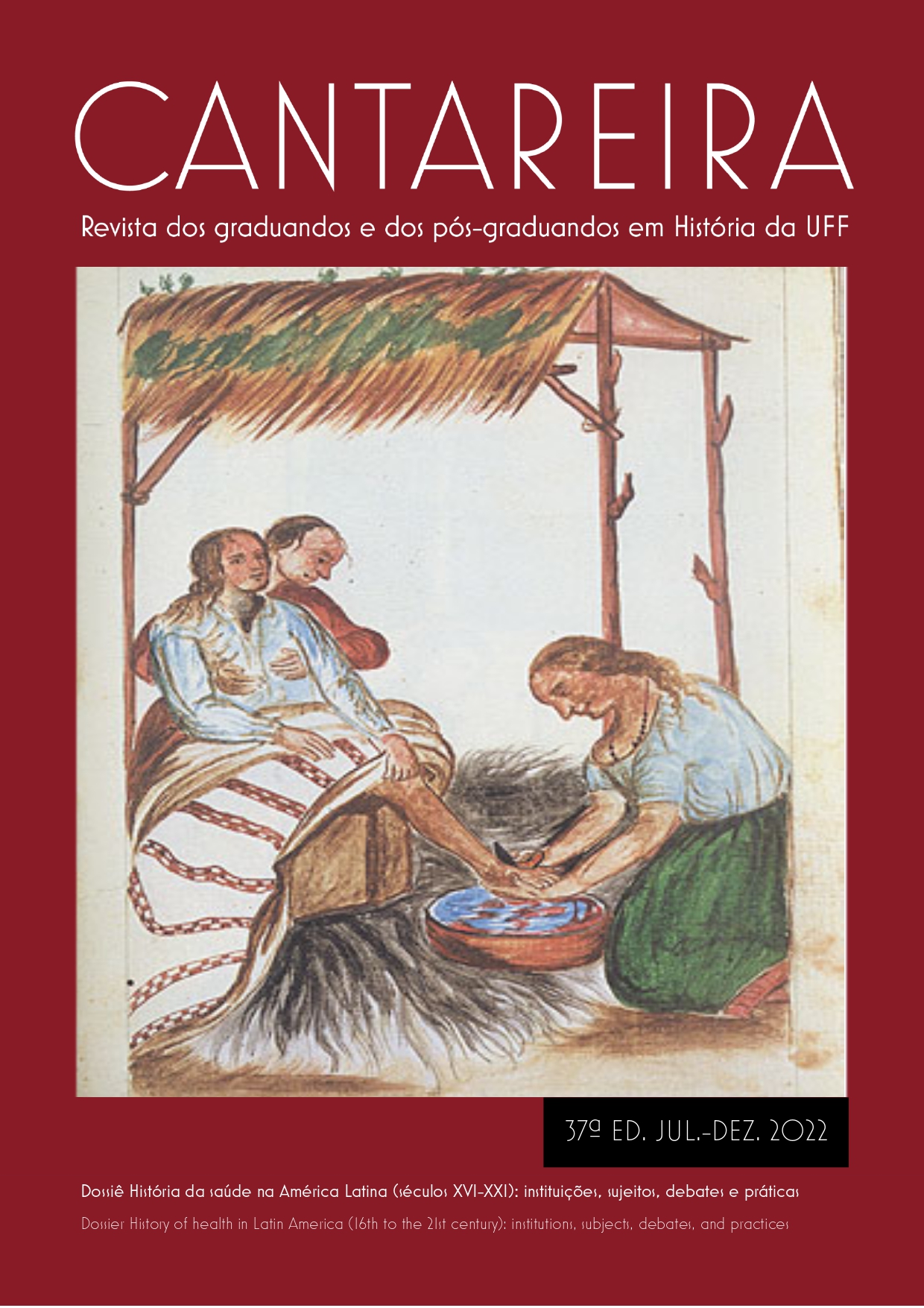Os perigos das amas de leite para a nação na obra de Emílio Joaquim da Silva Maia (1834-1859)
Palavras-chave:
Higiene médica, Racialismo, Amas de leiteResumo
Tendo como principal objeto o ensaio médico de Silva Maia contrário ao hábito de adotar amas de leite escravas para a criação e amamentação das crianças das elites brasileiras, este artigo buscou demonstrar de maneira crítica como a higiene médica defendida pelo autor possui afinidades com o poder hegemônico de seu tempo. Detentor de uma possível teoria racialista subentendida principalmente em seu escrito já mencionado, este fator, assim como outros argumentos de sua retórica médica que buscava afirmar as obrigações das mulheres brancas para com a criação das crianças, foram os principais elementos em que pudemos apontar as relações positivas entre as ideias do autor e a ordem social vigente em seu contexto. Inserido em uma realidade pesadamente marcada por valores raciais e patriarcais, o discurso do Dr. Silva Maia realizado na Sociedade de Medicina do Rio de Janeiro, de maneira indireta e inconsciente, pode também representar o avanço do Estado sob as elites senhoriais, pois, para Mattos (1987), o Regresso Conservador (1836-1852), na procura de preservar a ordem social ameaçada nos fins da Regência e início do Segundo Reinado, buscou dirigir a população de maneira política, moral e intelectual através de diversos recursos associados a ele.
Downloads
Downloads
Publicado
Edição
Seção
Licença
Autores que publicam nesta revista concordam com os seguintes termos:- Autores mantém os direitos autorais e concedem à revista o direito de primeira publicação, com o trabalho simultaneamente licenciado sob a Licença Creative Commons Attribution que permite o compartilhamento do trabalho com reconhecimento da autoria e publicação inicial nesta revista.
- Autores têm autorização para assumir contratos adicionais separadamente, para distribuição não-exclusiva da versão do trabalho publicada nesta revista (ex.: publicar em repositório institucional ou como capítulo de livro), com reconhecimento de autoria e publicação inicial nesta revista.
- Autores têm permissão e são estimulados a publicar e distribuir seu trabalho online (ex.: em repositórios institucionais ou na sua página pessoal) a qualquer ponto antes ou durante o processo editorial, já que isso pode gerar alterações produtivas, bem como aumentar o impacto e a citação do trabalho publicado (Veja O Efeito do Acesso Livre






